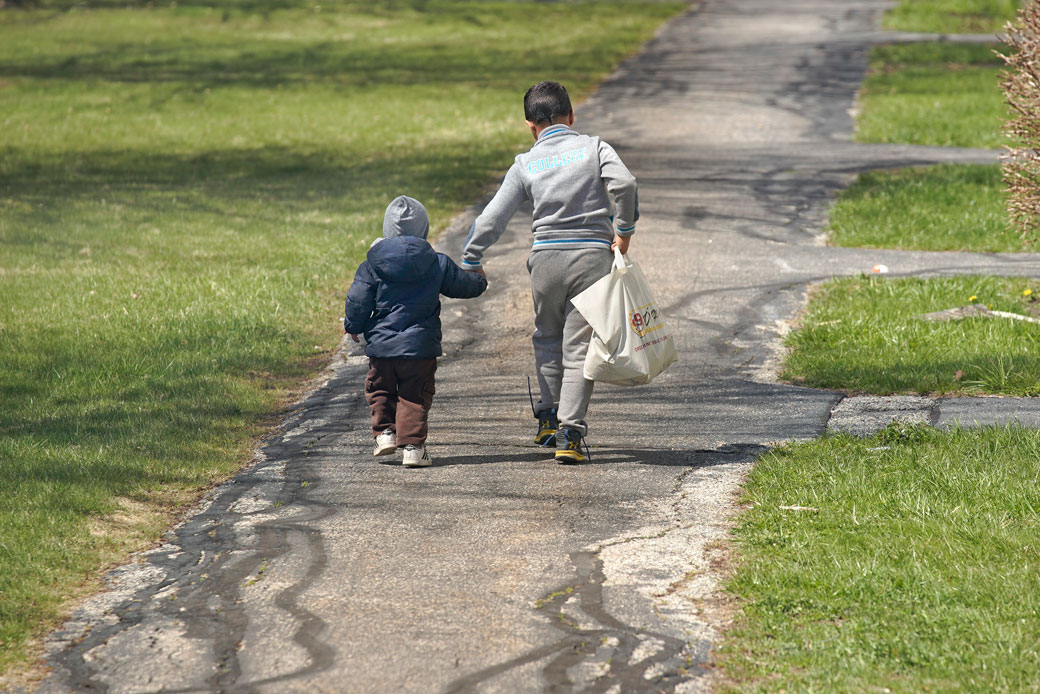
Impact of Morocco Earthquake on the Economy
Follow the latest updates on the Morocco earthquake
Introduction
The recent earthquake in Morocco has caused significant damages to the country’s infrastructure and economy. According to the United States Geological Survey (USGS), the economic losses could be as high as 8% of Morocco’s gross domestic product (GDP), amounting to approximately $10.7 billion.
Economic Impact
The USGS has assigned a red alert warning for potential economic losses faced by Morocco. The estimated economic losses range from 0 to 2% of the country’s GDP. Strong earthquakes have a major impact on the economy, leading to a decline in economic activity and significant reconstruction costs.
Comparison with Previous Earthquakes
The earthquake that struck Turkey and Syria in February resulted in estimated economic losses of $5.1 billion in Syria and over $25 billion in Turkey. The cost of reconstruction following the earthquake in Morocco is expected to exceed $100 billion, according to the United Nations.
Impact on Morocco’s Economy
Morocco’s economy has already been affected by various domestic and international shocks, including a drought and high commodity prices. The country’s real GDP growth has plummeted, leading to high inflation and putting pressure on public finances.
Sustainable Development Goals (SDGs)
The earthquake in Morocco has significant implications for achieving the Sustainable Development Goals (SDGs). The SDGs aim to eradicate poverty, promote economic growth, and ensure sustainable development. The earthquake’s impact on the economy and infrastructure will require a coordinated effort from various stakeholders to support Morocco in its recovery and reconstruction efforts.
Support from International Organizations
In a joint statement, the International Monetary Fund, the World Bank, the European Commission, France, India, and the African Union have pledged their support to Morocco. They will provide the necessary financial assistance and technical expertise to help the country overcome the devastating effects of the earthquake.
Impact on Tourism
Morocco is a popular tourist destination, with Marrakesh being home to many UNESCO World Heritage sites. The extent of the impact on tourism is yet to be determined. Tourism represents a significant portion of Morocco’s economy, contributing 7% of its economic activity and employing over half a million people.
Conclusion
The earthquake in Morocco has caused extensive damages to the country’s infrastructure and economy. The estimated economic losses are significant, and the recovery and reconstruction efforts will require a coordinated international response. It is crucial to prioritize the achievement of the SDGs in the recovery process to ensure sustainable development and resilience for the future.
SDGs, Targets, and Indicators Analysis
1. Which SDGs are addressed or connected to the issues highlighted in the article?
- SDG 1: No Poverty
- SDG 8: Decent Work and Economic Growth
- SDG 9: Industry, Innovation, and Infrastructure
- SDG 11: Sustainable Cities and Communities
- SDG 13: Climate Action
- SDG 17: Partnerships for the Goals
2. What specific targets under those SDGs can be identified based on the article’s content?
- SDG 1.5: By 2030, build the resilience of the poor and those in vulnerable situations and reduce their exposure and vulnerability to climate-related extreme events and other economic, social, and environmental shocks and disasters.
- SDG 8.1: Sustain per capita economic growth in accordance with national circumstances and, in particular, at least 7 per cent gross domestic product growth per annum in the least developed countries.
- SDG 9.1: Develop quality, reliable, sustainable, and resilient infrastructure, including regional and transborder infrastructure, to support economic development and human well-being, with a focus on affordable and equitable access for all.
- SDG 11.5: By 2030, significantly reduce the number of deaths and the number of people affected and substantially decrease the direct economic losses relative to global gross domestic product caused by disasters, including water-related disasters, with a focus on protecting the poor and people in vulnerable situations.
- SDG 13.1: Strengthen resilience and adaptive capacity to climate-related hazards and natural disasters in all countries.
- SDG 17.17: Encourage and promote effective public, public-private, and civil society partnerships, building on the experience and resourcing strategies of partnerships.
3. Are there any indicators mentioned or implied in the article that can be used to measure progress towards the identified targets?
- Indicator: Economic losses as a percentage of GDP
- Indicator: Number of deaths caused by earthquakes
- Indicator: Number of people affected by earthquakes
- Indicator: Cost of reconstruction following earthquakes
- Indicator: GDP growth rate
- Indicator: Resilience and adaptive capacity to climate-related hazards and natural disasters
Table: SDGs, Targets, and Indicators
| SDGs | Targets | Indicators |
|---|---|---|
| SDG 1: No Poverty | Target 1.5: Build the resilience of the poor and those in vulnerable situations | Economic losses as a percentage of GDP |
| SDG 8: Decent Work and Economic Growth | Target 8.1: Sustain per capita economic growth | GDP growth rate |
| SDG 9: Industry, Innovation, and Infrastructure | Target 9.1: Develop quality, reliable, sustainable, and resilient infrastructure | Cost of reconstruction following earthquakes |
| SDG 11: Sustainable Cities and Communities | Target 11.5: Reduce direct economic losses caused by disasters | Number of deaths caused by earthquakes Number of people affected by earthquakes |
| SDG 13: Climate Action | Target 13.1: Strengthen resilience and adaptive capacity to climate-related hazards and natural disasters | Resilience and adaptive capacity to climate-related hazards and natural disasters |
| SDG 17: Partnerships for the Goals | Target 17.17: Encourage and promote effective partnerships | N/A |
Behold! This splendid article springs forth from the wellspring of knowledge, shaped by a wondrous proprietary AI technology that delved into a vast ocean of data, illuminating the path towards the Sustainable Development Goals. Remember that all rights are reserved by SDG Investors LLC, empowering us to champion progress together.
Source: thenationalnews.com

Join us, as fellow seekers of change, on a transformative journey at https://sdgtalks.ai/welcome, where you can become a member and actively contribute to shaping a brighter future.






